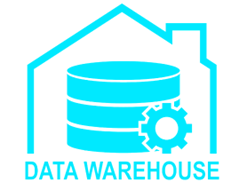What you will learn
- Understand the concepts and principles of data warehousing
- Gain proficiency in implementing ETL processes to load and transform data
- Learn dimensional modeling techniques for designing data warehouses
- Gain proficiency in implementing ETL processes to load and transform data
- Explore best practices for data warehouse design, implementation, and management
- Develop skills to optimize data warehouse performance and scalability
- Learn how to integrate data from disparate sources into a centralized data warehouse
- Gain insights into emerging trends and technologies in data warehousing
Beneficial for
- Data Engineers
- Database Administrators
- Data Analysts
- Business Intelligence Professionals
- IT Managers
Course Pre-requisite
- Basic understanding of databases and SQL
- Familiarity with data modeling concepts (beneficial but not mandatory)
- Knowledge of ETL processes and tools (beneficial but not mandatory)
Course Outline
Overview of data warehousing concepts and architecture
Understanding the role of data warehouses in decision support systems
Introduction to dimensional modeling techniques (star schema, snowflake schema)
Designing dimension and fact tables for data warehouses
Overview of ETL (Extract, Transform, Load) processes
Introduction to ETL tools and platforms for data integration
Best practices for designing and implementing data warehouses
Considerations for physical design, indexing, and partitioning
Managing data warehouse environments and resources
Implementing security measures and access controls in data warehouses
Techniques for optimizing data warehouse performance
Scaling data warehouses to accommodate growing data volumes and user loads
Integrating data from disparate sources into a centralized data warehouse
Advanced topics such as real-time data integration and data virtualization
Exploring emerging trends and technologies in data warehousing
Predictions for the future of data warehousing and analytics

